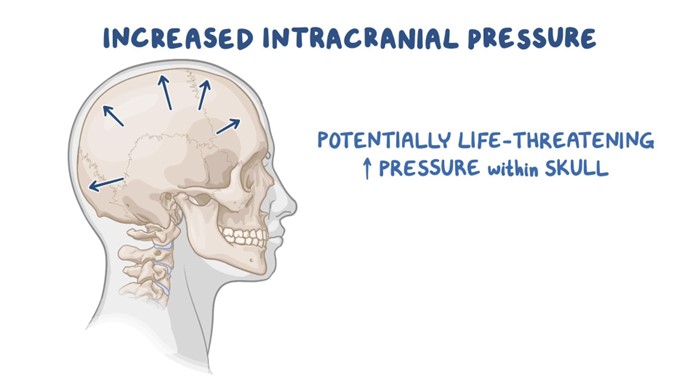A nurse is teaching a client who has a new prescription for sumatriptan (Imitrex) tablets to treat migraine headaches. Which of the following instructions should the nurse include?
Repeat dose in 1 hour for unrelieved headache.
Chew the tablet well before swallowing.
If you experience chest pain, call your physician immediately.
Take daily to prevent headaches.
The Correct Answer is C
Choice A reason: Repeat dose in 1 hour for unrelieved headache. This instruction is incorrect because sumatriptan should not be taken more than twice in 24 hours. Taking too much sumatriptan can cause serious side effects, such as high blood pressure, stroke, or heart problems.
Choice B reason: Chew the tablet well before swallowing. This instruction is incorrect because sumatriptan tablets should be swallowed whole with water. Chewing the tablet may affect its absorption and effectiveness.
Choice C reason: If you experience chest pain, call your physician immediately. This instruction is correct because chest pain is a serious and potentially life-threatening side effect of sumatriptan. Chest pain may indicate a heart attack or coronary artery spasm, which require immediate medical attention.
Choice D reason: Take daily to prevent headaches. This instruction is incorrect because sumatriptan is not a preventive medication for migraines. It is only used to treat acute migraine attacks when they occur. Taking sumatriptan daily can cause rebound headaches, which are worse and more frequent than the original ones.

Nursing Test Bank
Naxlex Comprehensive Predictor Exams
Related Questions
Correct Answer is A
Explanation
Choice A reason: Hypertension is a manifestation of increased intracranial pressure, as it reflects the body's attempt to maintain adequate cerebral perfusion pressure (CPP) and blood flow to the brain. CPP is the difference between the mean arterial pressure (MAP) and the intracranial pressure (ICP). When ICP rises, MAP must also rise to keep CPP constant and prevent cerebral ischemia. Hypertension is part of the Cushing's triad, which is a classic sign of increased ICP that also includes bradycardia and irregular respirations.
Choice B reason: Tinnitus is not a manifestation of increased intracranial pressure, as it does not affect the auditory system. Tinnitus is a ringing, buzzing, or hissing sound in the ears that can be caused by various factors, such as ear infections, noise exposure, medications, or aging. Tinnitus may be associated with other neurological conditions, such as Meniere's disease, acoustic neuroma, or multiple sclerosis, but not with increased ICP.
Choice C reason: Hypotension is not a manifestation of increased intracranial pressure, as it indicates a decrease in MAP and CPP, which can lead to cerebral ischemia and infarction. Hypotension can be caused by various factors, such as blood loss, dehydration, shock, or medications. Hypotension may worsen the outcome of increased ICP by reducing the oxygen and nutrient delivery to the brain.
Choice D reason: Tachycardia is not a manifestation of increased intracranial pressure, as it contradicts Cushing's triad. Tachycardia is an increase in heart rate that can be caused by various factors, such as anxiety, pain, fever, dehydration, or medications. Tachycardia may increase the oxygen demand and metabolic rate of the brain, which can exacerbate the effects of increased ICP.

Correct Answer is A
Explanation
Choice A reason: Scheduling energy-intensive activities at the time of day when the client has higher energy levels is the best activity plan for conserving the client's energy without compromising physical or mental health, as it allows the client to perform the tasks that require more effort and endurance when they feel more alert and capable. This can help the client to avoid fatigue, frustration, and injury, and to achieve their goals more effectively. The nurse should assess the client's individual preferences and patterns of energy fluctuation, and help them to prioritize and plan their activities accordingly.
Choice B reason: Scheduling all activities within a small block of time to allow the client a longer, uninterrupted rest period is not a good activity plan for conserving the client's energy without compromising physical or mental health, as it may cause the client to overexert themselves and deplete their energy reserves. This can lead to exhaustion, pain, and stress, and impair the client's recovery and quality of life. The nurse should advise the client to balance their activities with adequate rest periods throughout the day and to avoid doing too much or too little at once.
Choice C reason: Scheduling toilet breaks before and after any other planned activity is not a good activity plan for conserving the client's energy without compromising physical or mental health, as it may not be realistic or feasible for some clients. Some clients may have urinary or bowel problems that require them to use the toilet more frequently or urgently, such as incontinence, infection, or constipation. Forcing them to follow a rigid schedule may cause them discomfort, embarrassment, or complications. The nurse should assess the client's elimination needs and habits, and help them to manage their toileting needs in a comfortable and convenient way.
Choice D reason: Scheduling the client's hygiene activities and limiting visitors is not a good activity plan for conserving the client's energy without compromising physical or mental health, as it may neglect the client's social and emotional needs. Hygiene activities are important for maintaining the client's physical health and well-being, but they can also be tiring and challenging for some clients. Limiting visitors may reduce the noise and stimulation in the environment, but it can also isolate the client from their family and friends who can provide support and companionship. The nurse should assist the client with their hygiene needs as needed, and encourage them to interact with their visitors as tolerated.
Whether you are a student looking to ace your exams or a practicing nurse seeking to enhance your expertise , our nursing education contents will empower you with the confidence and competence to make a difference in the lives of patients and become a respected leader in the healthcare field.
Visit Naxlex, invest in your future and unlock endless possibilities with our unparalleled nursing education contents today
Report Wrong Answer on the Current Question
Do you disagree with the answer? If yes, what is your expected answer? Explain.
Kindly be descriptive with the issue you are facing.
